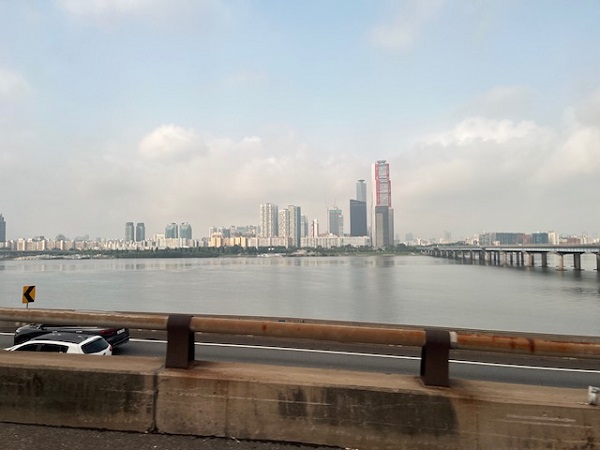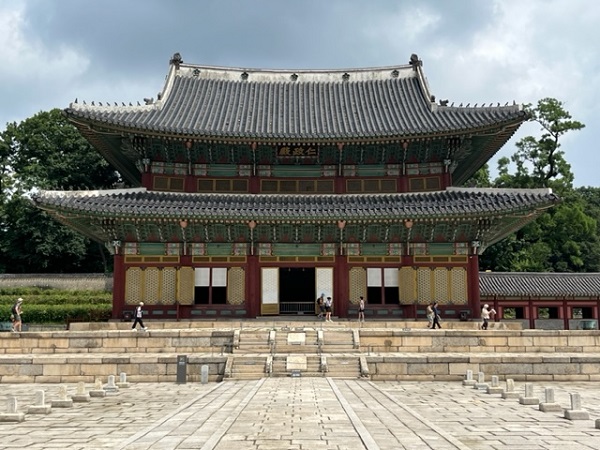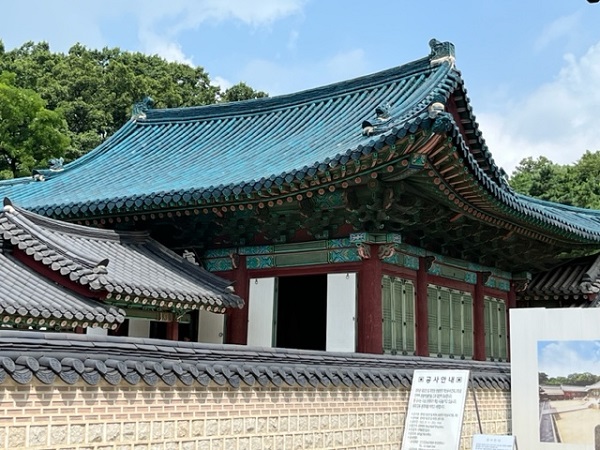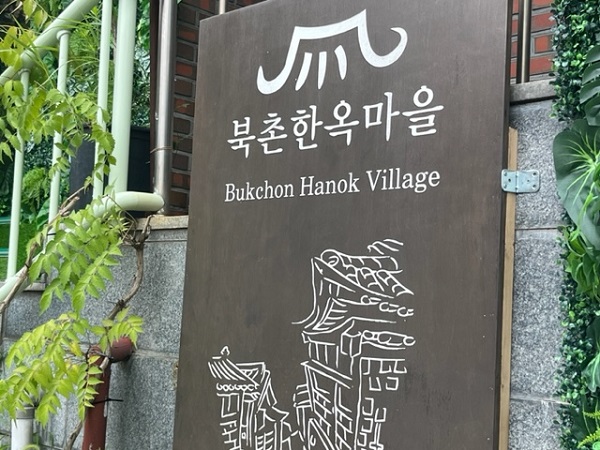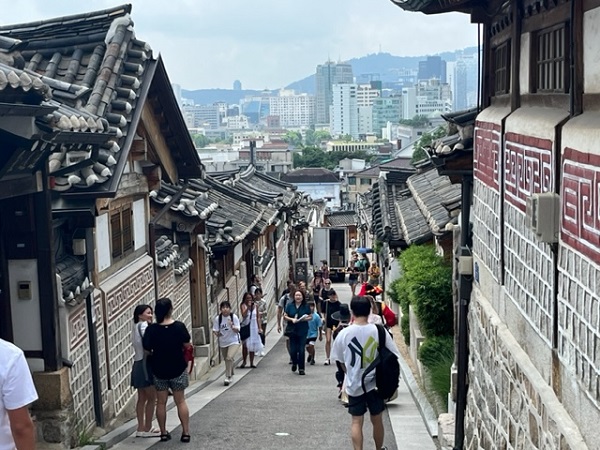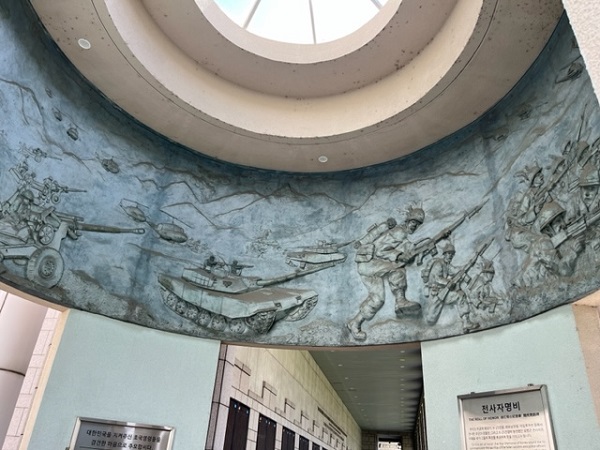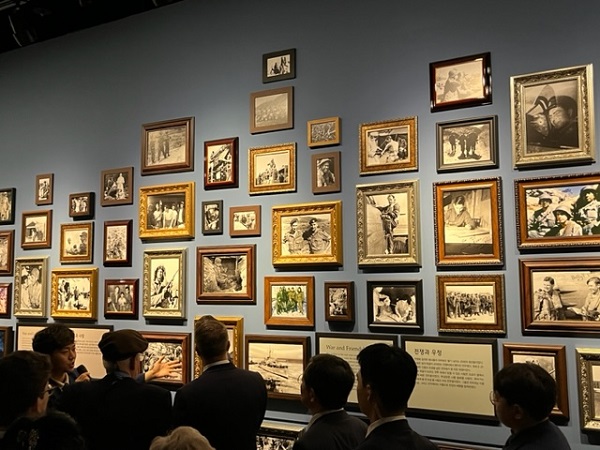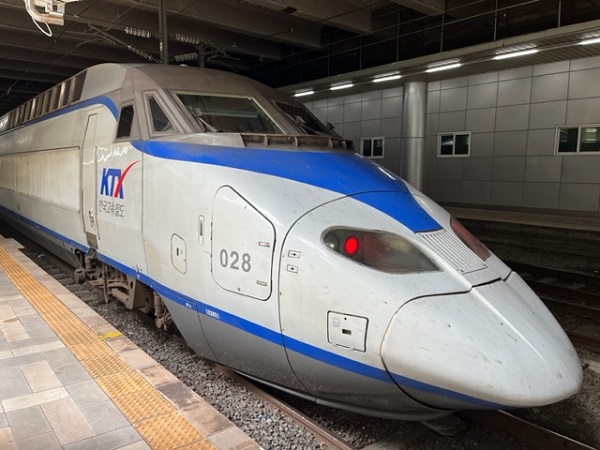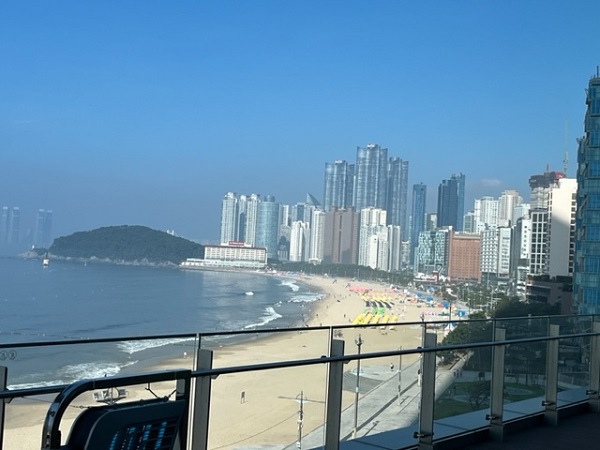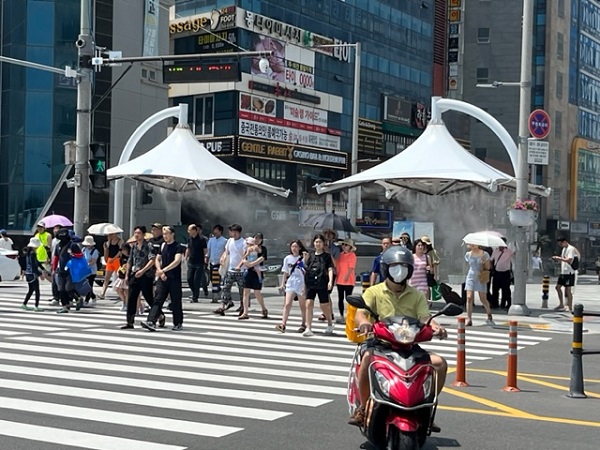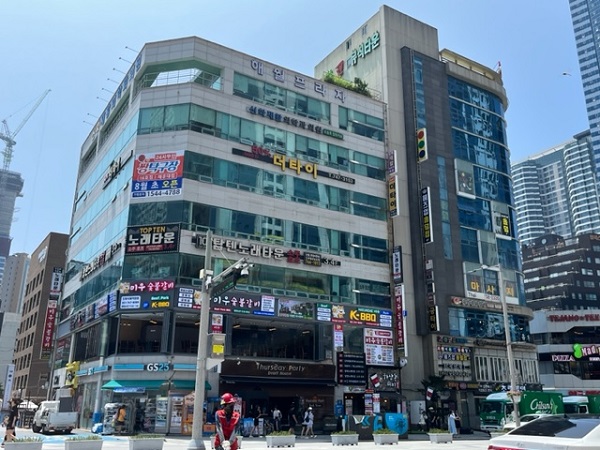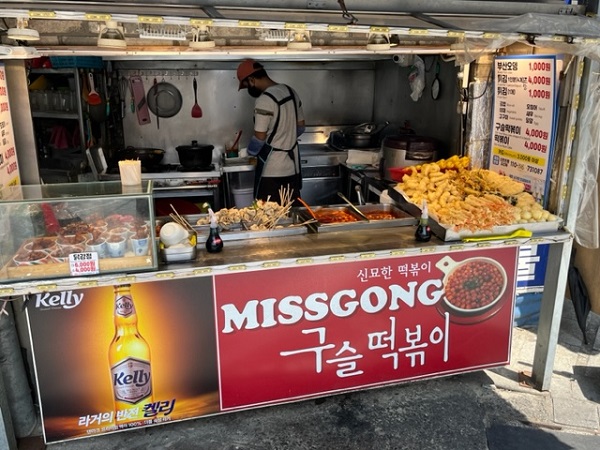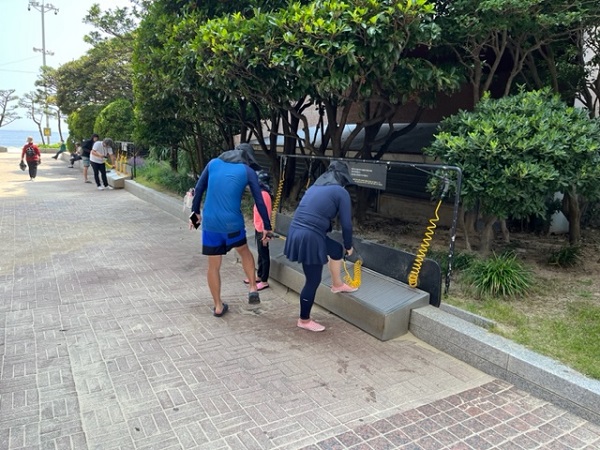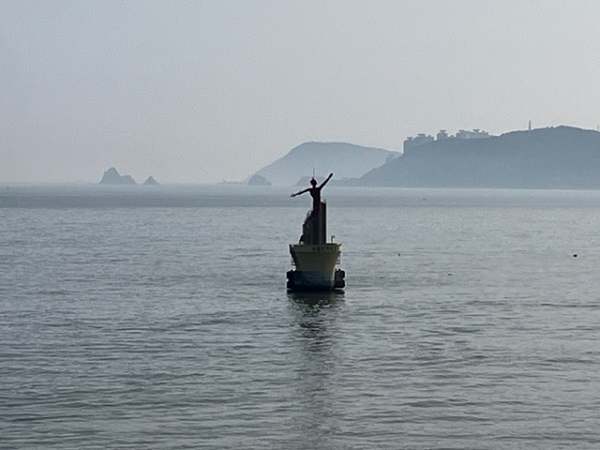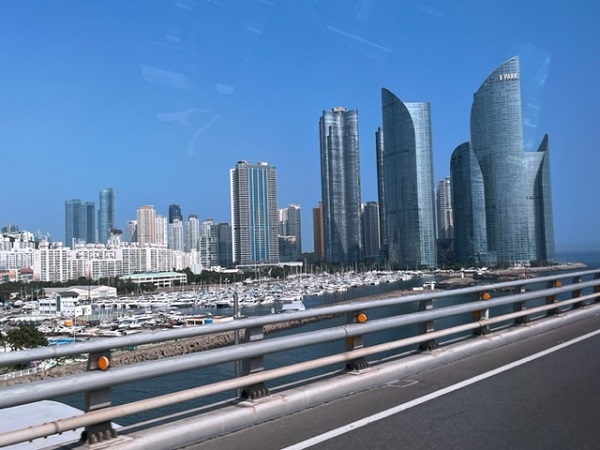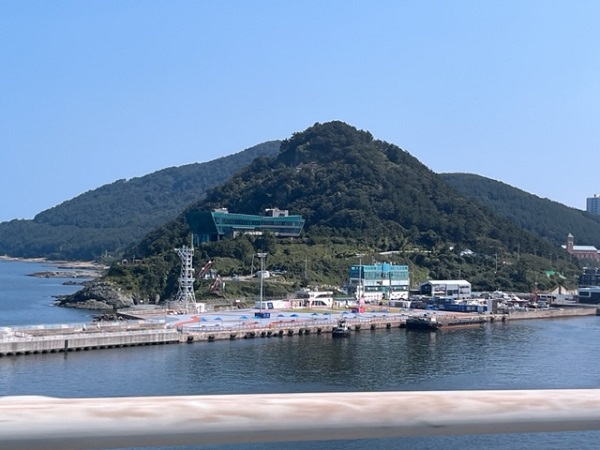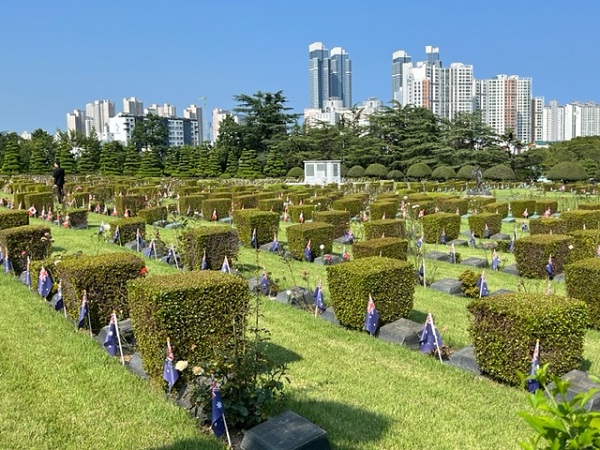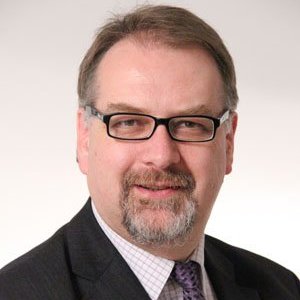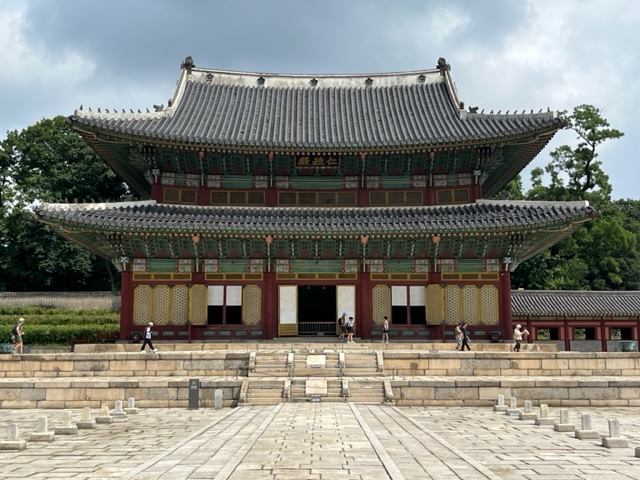 Changdeokgung Palace;
Credit: Chronicle.lu
Changdeokgung Palace;
Credit: Chronicle.lu
I got the opportunity to travel to South Korea this past week, accompanying the Prime Minister of Luxembourg, Xavier Bettel, and the small official delegation, as part of the press delegation.
The occasion was the UN Forces Participation Day and the 70th anniversary of the Korean War Armistice Commemoration Ceremony which were held throughout the week of 24-28 July 2023, with both official and unofficial parts of the programme. The 22 UN countries that fought alongside South Korean during the Korean War (1950-53) were all invited to participate, as were representatives of the UN. The visit also addressed economic and diplomatic issues, the latter involving appointing a new Consul-General and preparing for the opening of a new embassy in Seoul later this year.
Unfortunately, we could not attend everything organised in relation to the UN event, the one personal disappointment being not being able to get to the DMZ, the de-militarised zone between South Korea and North Korea. However, apparently, this tourist spot is actually inside a building which spans the border, not quite the same images as when US President Trump met North Korea's Kim a few years ago...
My first time in this gem of a South-East Asian country - I have been lucky enough over the years to also visit (a number of cities in) China, Hong Kong, Macau, Thailand, Malaysia, Singapore, Vietnam and Cambodia - I was not really sure what to expect culture-wise. Yes, the climate was very similar to when most recently visiting Vietnam (also with a press delegation) in May - around 30C and high humidity - but this was much more "westernised" than the chaos that works in cities such as Hanoi and Ho Chi Minh city in Vietnam. It is as spick-and-span as Switzerland and how Luxembourg used to be 20 years ago (the difference is not that big, but it is noticeable).
A 12-hour flight to Seoul-Incheon airport to a country of 50 million people (North Korea's population is around 25 million) where the time difference is seven hours from CET in the Grand Duchy. Seoul itself has 10 million inhabitants; however, if one counts the entire "Seoul Capital Area" of Seoul, Incheon and Gyeonggi, the number is closer to 25 million (recognised as the 16th largest city in the world), with Busan having around 3.5 million inhabitants. South Korea has a land border with North Korea to the north, and to the south/east is the East Sea / Japan Sea. The local currency is the Won, but many shops accept dollars from tourists; Korean food is normally eaten with metal chopsticks (trickier to manage than their wooden/plastic equivalents) and long-handled spoons. Of the population, around 27% are Christian and 15% are Buddhists, with the majority not religious.
We were welcomed by Luxembourg's ambassador to South Korea who resides in Tokyo as he also serves Japan and the Phillippines. As the Prime Minister was coming in on a later flight, we were able to fit in a quickfire guided tour of the city. Remember, though, we had a 12-hour flight, leaving Paris Charles de Gaulle at around midday on Monday, arriving just after midnight but which was actually just after 07:00 local time. So we could not check in to the hotel yet, and had not managed to get much sleep, bleary-eyed from the jet-lag...
Shortly after landing on the Tuesday, as the early-morning temperatures rose and the sun came out, the heat intensified and, together with the high humidity, meant that it was quite uncomfortable at times.
However, undeterred, we set off to visit the Changdeokgung Palace which dates from 1405; it was destroyed by the Japanese invasion (1592-1598) and was rebuilt in 1610 and served as the main palace for 270 years. It comprised many separate and/or connected buildings: the Injeongjeon (Throne) Hall is very ornate, with the Seonjeongjeon Hall the only structure remaining with blue-glazed roof tiles.
We also visited the Bukchon Hanuk village, a preserved residential quarter of Seoul, not unlike Montmartre in Paris as it is built on a hill with narrow streets, or even the Hutong in the shadow of the Forbidden City and not far from Tiananmen Square in Beijing, another preserved quarter in a large Asian city. Unfortunately, the guided tour of Busan marina, by boat, on the Thursday morning, was cancelled, with work replacing it...
After a number of engagements and an overnight hotel stay, we took the KTX high-speed train linking Seoul (in the north-west) to Busan (in the south-east): the 350 km journey took just under two and a half hours each way, reaching speeds of up to 305 km/h. And to think that the 200km rail link between Brussels and Luxembourg still takes the same time to travel... Along the way there were a few tunnels, but most of the journey was over either flat plains of farmland given over to agriculture, including rows upon rows of greenhouses and polytunnels, or tree-covered hills.
While we did not have the time to really explore the country, or the cities of Seoul and Busan - with many photographs taken from moving vehicles - we did manage to get a flavour of some aspect of life. We got to eat a number of Korean dishes, including Kimchi, a type of fermented cabbage garnished with a spicy tomato sauce, a Korean BBQ of beef and pork; and the fresh fruit was as delicious as in other south-east Asian countries. While walking near the hotel and beach in Busan - one of the candidate countries to host the World Expo in 2023 along with Rome, Odessa and Saudi Arabia - we noticed gazebo-shaped features at traffic lights, not only to provide shade to pedestrians, but also to blow cold air to keep people cool; also seen for the first time were compressed air contraptions allowing beach-goers to blow sand off their feet (instead of water, as in other countries). But they also had showers and lockers adjacent to the beaches, for public use.
As when he did get “out and about” as he did also recently when in Vietnam in May, Prime Minister Bettel stopped on a number of occasions to chat to other visitors to the museum, namely scouts from many different countries attending the forthcoming jamboree in South Korea.
We spent a lot of time participating in the official UN Veterans' itinerary, with most of the rest of the time spent following diplomatic and economic aspects of the Prime Minister's itinerary, with little free time; the cultural side of the visit also involved a (relatively short) classical concert. But we did appreciate the incredible country and its wonderful people - definitely on the list of place to return at some time in the future...

